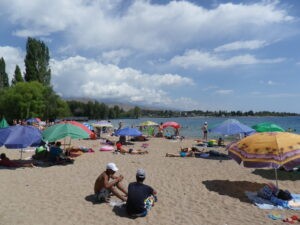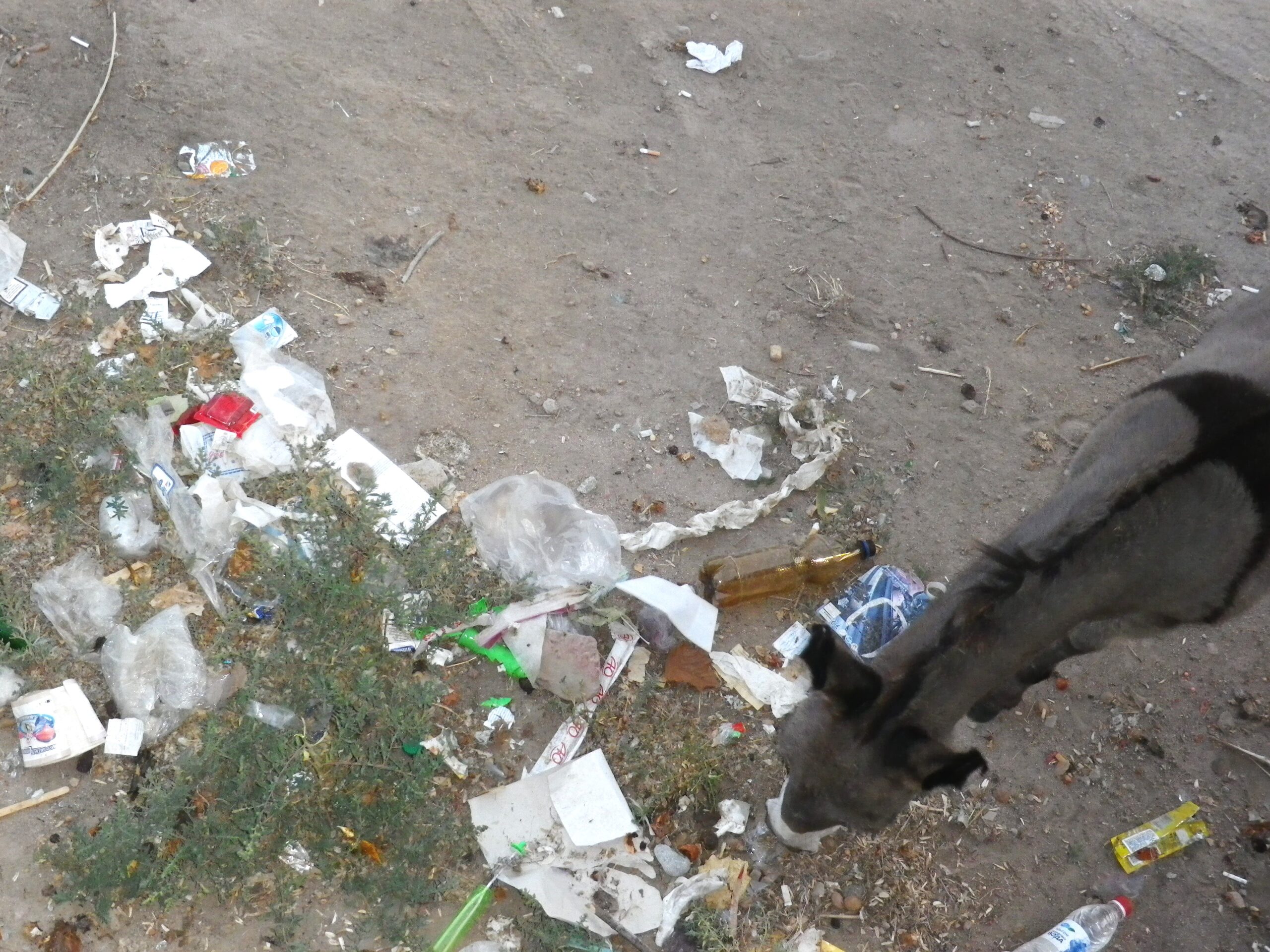A law imposing fines on the import and sale of plastic bags and utensils is aimed at reducing the harmful effects of polymeric materials on health and the environment in the Kyrgyz Republic, according to the press service of the Ministry of Natural Resources, Ecology and Technical Supervision of Kyrgyzstan.
The ban will take effect in the resort and recreational area of Issyk-Kul, as well as in reserves and natural parks of Kyrgyzstan. The ban was signed by President Japarov last year, since when deputies and the Ministry of Natural Resources of have been working on finalizing its details. One sticking point is that the authorities still can’t decide whether to ban all plastic or to make an exception for some products.

Shashlyk vendor, Issyk-Kul; Photo: TCA
“The list of plastic products banned for circulation includes all kinds of disposable plastic utensils, disposable plastic packaging for food, plastic bottles, disposable plastic packaging for eggs, plastic coffee capsules, [and plastic] bags for food,” the law states. But, as the Ministry of Natural Resources notes, the law is still being amended and there is a lack of clarity.
Meanwhile, food vendors in the Issyk-Kul region say that not all citizens are ready to give up plastic bags and bottles. Therefore, while large stores in Issyk-Kul have stopped selling disposable tableware and replaced them with paper products and Tetra Pak substitutes, the law is poorly enforced in markets and smaller outlets.

Lake Issyk-Kul; Photo: TCA
According to the Ministry of Natural Resources, Ecology and Technical Supervision, the Supervision Service has not imposed a single fine so far, with only warnings being issued. However, they say that as soon as all of the controversial issues have considered, sellers and producers will be fined. So far, the law applies only to sellers and manufacturers of plastic products. Private individuals can use bags, bottles and disposable tableware.
In January of this year, the Issyk-Kul Region became the first in the country where a ban on the circulation of plastic was introduced. From 2027, the law will be expanded to ban the use of plastic containers throughout the country.
Businesses are not satisfied, however, complaining that their opinion was not taken into account in drafting the law. In their opinion, it would have been better to prescribe economic incentives for businesses. Currently, they argue, all soft drinks and vegetable oils are bottled in plastic bottles, and it’s difficult to find replacements for them. In addition, Kyrgyzstan does not yet have large production facilities for alternative containers such as paperboard-and-foil Tetra Paks or glass bottles. Most plastic goods are imported into Kyrgyzstan from abroad, mainly from countries which are not planning to give up disposable plastic containers and are only increasing their production.
Meanwhile, Kyrgyzstan’s environmentalists have long been sounding the alarm. The biggest danger to the country’s ecology is plastic bottles and cellophane bags, which can be scattered by the wind over a large area. For example, the problem of toxic plastic pollution is particularly acute in Issyk-Kul. Many tourists leave plastic bags and bottles on the shore of the lake, and as a result, at the end of the tourist season the Ministry of Emergency Situations retrieves tons of plastic products from the lake. In addition to disposable containers and bags, they also found poachers’ fishing nets made of synthetic materials, which had accumulated over time and polluted the lake.
Kyrgyzstan does not have a waste processing plant, nor does it have a separate waste collection system. As a result, most disposable bags and bottles are left in landfills. To date, only some private enterprises recycle plastic, but they are wholly insufficient to solve this persistent problem.









